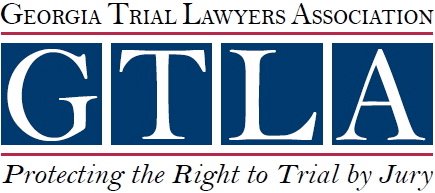Construction sites are inherently dangerous environments where workers face a variety of hazards daily. In Georgia, the construction industry sees numerous projects involving residential, commercial, and infrastructural developments. With the increase in construction activities, the incidence of construction-related accidents has also risen, necessitating a comprehensive understanding of the basics of construction accident cases. Construction accidents can lead to severe injuries, substantial financial burdens, and complex legal battles. Understanding the intricacies of these cases is crucial for victims seeking compensation and for those aiming to enhance workplace safety.




Common Causes of Construction Accidents
Construction sites are fraught with potential dangers that can result in accidents. These hazards include falls from heights, which are among the most common causes of injuries and fatalities on construction sites. Workers often perform tasks on ladders, scaffolding, or roofs, making them vulnerable to falls due to equipment failure, lack of proper safety gear, or inadequate training. Another significant cause of accidents is being struck by objects. Construction sites are dynamic environments where tools, debris, and equipment can fall or be mishandled, posing a risk to workers below. Heavy machinery accidents are also prevalent, with workers facing risks from cranes, forklifts, and other large equipment. Improper operation, mechanical failures, and lack of training can lead to severe injuries or fatalities. Electrical hazards are another critical concern. Exposed wires, faulty equipment, and lack of proper grounding can result in electric shocks or electrocutions. Moreover, trench and excavation accidents pose serious threats, with the risk of cave-ins being particularly dangerous. Workers can be buried under soil or debris, leading to fatal outcomes.
Legal Framework Governing Construction Accident Cases in Georgia
Navigating the legal landscape of construction accident cases in Georgia requires a thorough understanding of the relevant laws and regulations. Workers’ compensation laws play a pivotal role, providing financial support for injured workers. In Georgia, most employers are required to carry workers’ compensation insurance, which covers medical expenses, rehabilitation costs, and a portion of lost wages for employees injured on the job. This system is designed to offer prompt compensation without the need to prove fault. However, workers’ compensation benefits may not cover all damages, such as pain and suffering, which can be pursued through personal injury claims. Personal injury claims in construction accident cases often hinge on proving negligence. To establish negligence, the injured party must demonstrate that the defendant owed a duty of care, breached that duty, and caused the injury as a direct result. Common defendants in construction accident cases include property owners, general contractors, subcontractors, equipment manufacturers, and other third parties. Each party’s liability depends on their role and the specific circumstances of the accident. Georgia follows a modified comparative negligence rule, meaning that an injured worker can recover damages as long as they are less than 50% at fault for the accident. The compensation awarded is reduced by the worker’s percentage of fault. For example, if a worker is found to be 30% at fault and awarded $100,000 in damages, they would receive $70,000.
Steps to Take Following a Construction Accident
In the aftermath of a construction accident, taking immediate and appropriate steps is crucial for the well-being of the injured worker and the success of any subsequent legal claims. First and foremost, it is essential to seek medical attention. Prompt medical care ensures that injuries are properly diagnosed and treated, and it also creates a vital record of the injuries sustained. Even if injuries seem minor, it is important to get a professional evaluation as some injuries may not manifest symptoms immediately. Reporting the accident to the employer is another critical step. In Georgia, workers are required to notify their employer about the accident within 30 days. Failure to do so may jeopardize their eligibility for workers’ compensation benefits. The report should be detailed, including the date, time, location, and circumstances of the accident, as well as the names of any witnesses. Gathering evidence is also essential. This includes taking photographs of the accident scene, injuries, and any equipment involved. Collecting contact information from witnesses and obtaining copies of any relevant documents, such as safety reports or maintenance records, can strengthen a legal case. Consulting with an experienced construction accident attorney is highly advisable. An attorney can provide invaluable guidance, help navigate the complexities of workers’ compensation and personal injury claims, and ensure that the injured worker’s rights are protected throughout the legal process.
Proving Liability in Construction Accident Cases
Establishing liability in construction accident cases can be challenging due to the multiple parties involved and the complexity of construction projects. Proving negligence is often central to these cases. This involves demonstrating that a party had a duty of care, breached that duty, and caused the injury as a direct result. General contractors and subcontractors have a responsibility to ensure that the construction site is safe and that all workers are properly trained and equipped. Failure to meet these obligations can constitute negligence. Property owners may also be held liable if they failed to address hazardous conditions or did not comply with safety regulations. Equipment manufacturers can be liable if defective machinery or tools contributed to the accident. The testimony and thorough investigation are often required to establish liability. This may involve reviewing safety records, maintenance logs, and accident reports, as well as conducting site inspections and interviewing witnesses. An attorney can help coordinate these efforts and build a compelling case.
Hiring a Personal Injury Attorney How Long Will a Personal Injury Case Take?Related Videos
Potential Damages in Construction Accident Cases
Victims of construction accidents may be entitled to various types of damages, depending on the circumstances of the case. Medical expenses are a primary concern, covering the cost of emergency care, hospitalization, surgeries, medications, and ongoing treatment such as physical therapy. In severe cases, future medical expenses may also be considered. Lost wages and loss of earning capacity are significant factors, especially if the injuries prevent the victim from returning to work or require them to take a lower-paying job. Calculating these damages involves not only past income but also future earnings potential. Pain and suffering damages compensate for the physical pain and emotional distress caused by the accident. This can include chronic pain, depression, anxiety, and loss of enjoyment of life. In cases involving gross negligence or intentional misconduct, punitive damages may be awarded. These are intended to punish the wrongdoer and deter similar behavior in the future. An attorney can help determine the full extent of damages and ensure that the victim receives fair compensation.
The Role of Safety Regulations and Standards
Safety regulations and standards play a critical role in preventing construction accidents and establishing liability when accidents occur. The Occupational Safety and Health Administration (OSHA) sets and enforces safety standards for construction sites, covering areas such as fall protection, scaffolding, electrical safety, and hazard communication. Employers are required to comply with these standards and provide a safe working environment. In addition to federal regulations, Georgia has state-specific laws and regulations governing workplace safety. These may include requirements for safety training, certifications, and reporting of accidents and injuries. Violations of safety regulations can be used as evidence of negligence in construction accident cases. If an employer or contractor failed to adhere to OSHA standards or state regulations, they may be held liable for any resulting injuries. An attorney can help identify relevant safety violations and use them to strengthen a legal case.
Representative Cases
Importance of Legal Representation in Construction Accident Cases
Navigating the legal complexities of construction accident cases requires skilled legal representation. An attorney can provide essential support, from gathering evidence and proving liability to negotiating with insurance companies and representing the victim in court. Insurance companies often seek to minimize payouts, and having an attorney can help ensure that the victim receives fair compensation. Attorneys can also assist with the intricacies of workers’ compensation claims, ensuring that all necessary documentation is submitted and deadlines are met. They can advise on whether to accept a settlement offer or pursue additional damages through a personal injury claim. Legal representation is particularly important in cases involving multiple parties or complex liability issues. An attorney can coordinate the investigation, work with specialists, and build a strong case to maximize the victim’s chances of a successful outcome.
Construction accidents can have devastating consequences for workers and their families. Understanding the basics of construction accident cases in Georgia, from common causes and legal frameworks to proving liability and potential damages, is essential for those affected by these incidents. If you or a loved one has been injured in a construction accident, it is crucial to seek experienced legal representation to navigate the complexities of your case and secure the compensation you deserve. Princenthal, May & Wilson, LLC is here to help. Our dedicated team of attorneys has the knowledge and experience to guide you through every step of the legal process. Contact us today for a consultation and let us fight for your rights and recovery.





